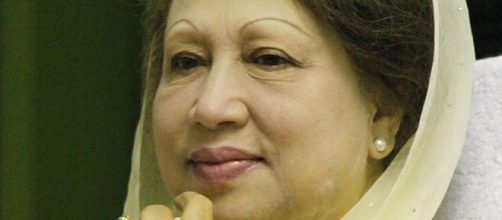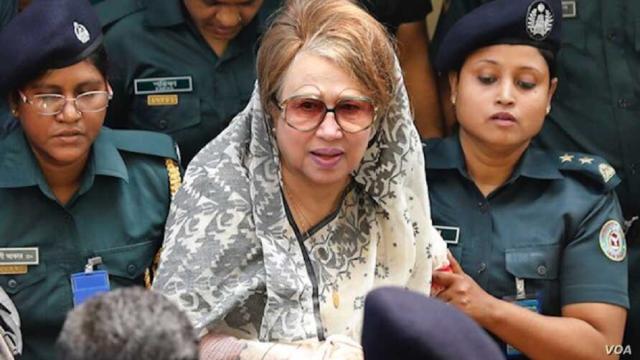Khaleda Zia was prime minister of Bangladesh twice. She has also been the leader of the opposition on two occasions. Recent years were rather less kind to Zia.
She was accused of corruption and later found guilty in a criminal trial. Since beginning her prison term, her health has also become a real concern. So much so, that she's been granted a temporary reprieve.
To be released for six months on medical grounds
Bangladeshi Law Minister Anisul Huq announced Khaleda Zia will be released from prison on humanitarian grounds. Her limited freedom is not expected to be permanent.
Rather, it's supposed to be for six months, according to Reuters.
The release is conditional. ABC reports that they include Zia not being allowed to leave Bangladesh. Earlier this year, a court denied a request that she receive medical treatment in the United Kingdom. She had previously made a similar request last year that was also denied. Zia has reportedly been plagued by ailments including arthritis and respiratory problems.
Zia's first tenure as prime minister lasted from 1991 to 1996. She re-took the office in 2001, holding it until 2006. Additionally, she led the official opposition from 1996 to 2001 and again from 2008 to 2014.
In 2018, Zia was convicted of embezzling money meant for an orphanage trust and misusing her power.
Later that year, she was also convicted in a separate case involving a supposed charitable trust. She has also been accused of wrongdoing in more than 30 other cases. Zia's political allies have claimed that the charges are false. They've also claimed that the charges were meant to keep Zia out of Bangladeshi politics.
Khaleda Zia part of a long-standing political rivalry
Since the early 1990s, Zia was involved in a political power struggle. Her main opponent has been Sheikh Hasina. Hasina is the current long-standing prime minister of Bangladesh. Her first go-round lasted from 1996 to 2001. Hasina was the leader of the opposition three different times. The first was from 1986 until 1988. The second last from 1991 to 1996.
And the third began in 2001 and ended in 2006. Her second and third tenures in the role were while Zia was prime minister. Likewise, most of Zia's time as an opposition leader came while Hasina was in power.
Both women come from families with prominent political histories. Zia's husband, Ziaur Rahman, was chief of Bangladesh's Army before also eventually becoming the country's president. Rahman was assassinated in 1981 in an attempted coup d'etat. Zia and Rahman's oldest son, Tarique Rahman, has also become a controversial political figure.
Hasina's father, Sheikh Mujibur Rahman, was president of Bangladesh twice. In-between terms, he was the country's prime minister. In 1975, he along with several members of his family and staff were murder in a coup d'etat. Some have speculated that the Central Intelligence Agency instigated the assassination.




